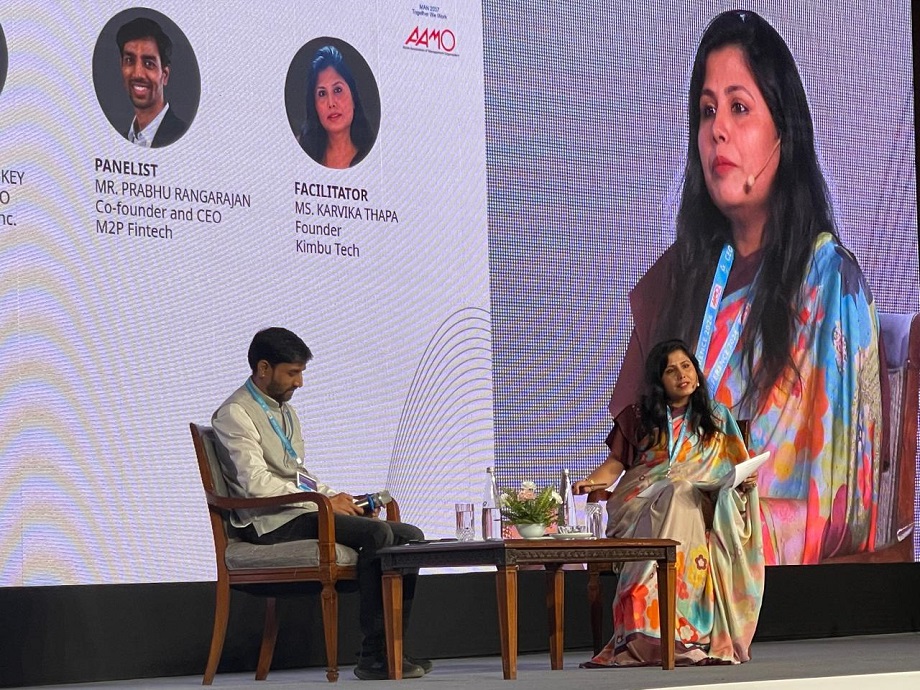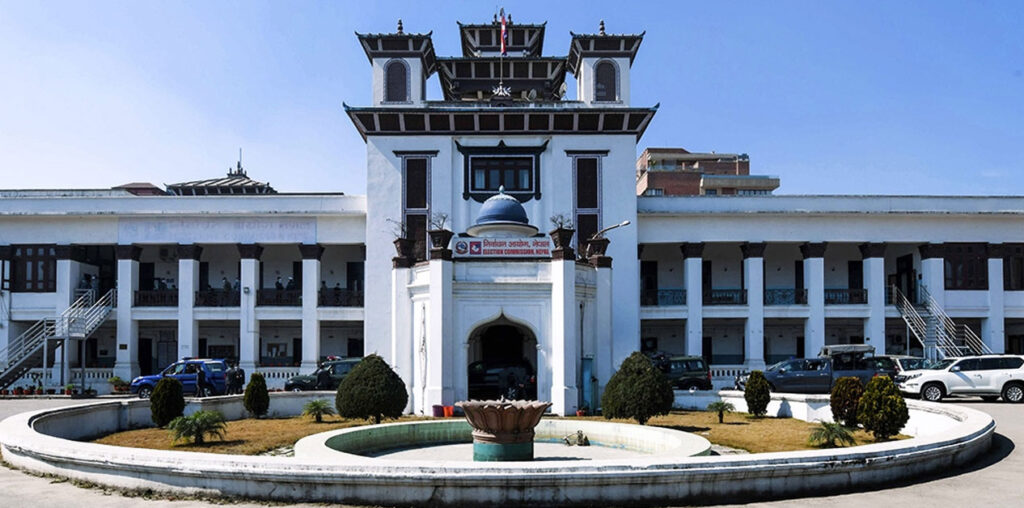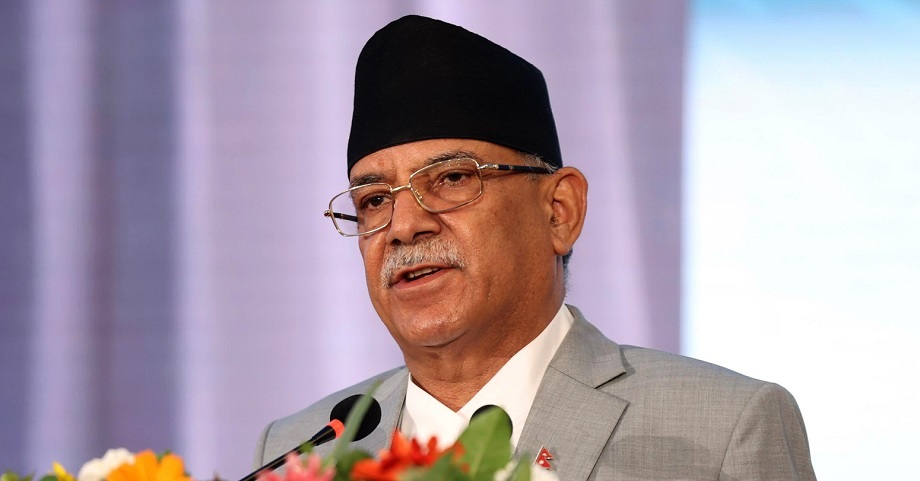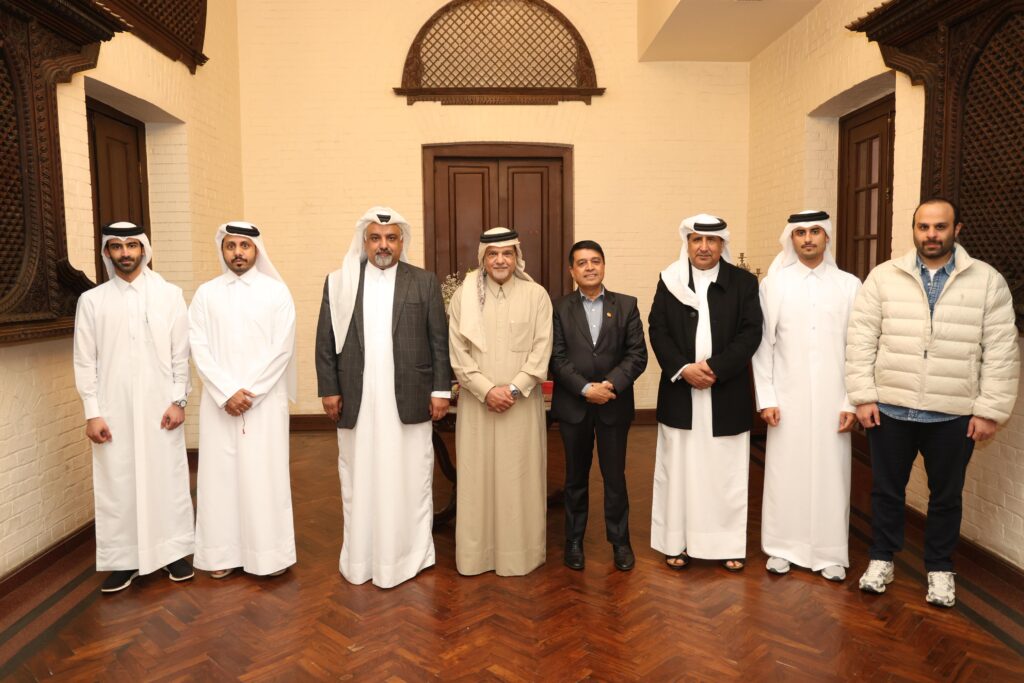The Management Association of Nepal (MAN) today hosted the highly anticipated ‘CEO Conference’ at The Soaltee Kathmandu. The conference, themed “The Future of Work: Adapting to a Changing Landscape,” featured insights and research-based strategies from international experts. The event aimed to assist stakeholders in understanding and navigating the future workplace, driven by technology-based business models, emerging industries, and innovation. One of the most significant sessions of the conference, titled “Success Stories: From Scratch to the Sky,” was facilitated by Karvika Thapa, Founder of Kimbu Tech. Thapa, a prominent figure in the tech industry, skillfully guided the discussion with esteemed panel speakers: Prabhu Rangarajan, CEO of Invest India; Sameer Maskey, Founder and CEO of Fusemachines Inc.; and Prabhu Rangarajan, Co-founder of M2P Fintech.
Karvika Thapa commenced the session by inviting the panelists to share their success stories, focusing on the journeys of Fusemachines Inc. and M2P Fintech. Sameer Maskey shared the inspiring journey of Fusemachines, emphasizing the company’s dedication to democratizing AI education and fostering AI talent globally. He highlighted the importance of leveraging local talent and providing them with the necessary tools and education to excel in AI. Fusemachines started as a small startup but has now grown into a global leader in AI solutions, providing cutting-edge technology to businesses worldwide. “At Fusemachines, we believe in the power of education and technology to transform lives. Our success is rooted in our commitment to creating opportunities for talented individuals, regardless of their geographic location. By providing AI education and resources, we have been able to build a diverse and skilled team that drives our innovation and growth,” said Maskey.
Prabhu Rangarajan shared the remarkable growth story of M2P Fintech. He attributed the company’s success to its focus on solving real-world financial problems through technology. M2P Fintech has revolutionized the fintech industry by providing robust and scalable solutions that cater to the needs of businesses and consumers alike. “Our journey at M2P Fintech has been about identifying pain points in the financial sector and addressing them with innovative solutions. By staying agile and customer-focused, we have been able to scale rapidly and make a significant impact in the fintech ecosystem,” said Rangarajan. Karvika Thapa highlighted the gap between high tech and banking financial institutions, asking the panelists how traditional banks can transition to becoming tech-friendly institutions.
Sameer Maskey acknowledged the challenges in bridging this gap and pointed out the difficulty in obtaining loans in Nepal, stressing the need for addressing this issue. “It’s hard to get loans in Nepal, which hampers innovation and growth. Financial institutions need to adopt technology to streamline their processes and make it easier for businesses to access capital. This transition involves embracing digital transformation, improving cybersecurity measures, and investing in training for employees to handle new technologies,” said Maskey. Prabhu Rangarajan addressed the issue from a demographic perspective, noting the large populations of Nepal and India as a factor. “With the vast populations in Nepal and India, there is a significant opportunity to leverage technology to reach a broader audience. Traditional banks need to innovate by incorporating digital solutions that cater to the needs of a tech-savvy generation. This includes developing user-friendly mobile banking apps, enhancing online services, and ensuring secure and efficient transactions,” explained Rangarajan.
Sameer Maskey also addressed the critical aspect of integrating AI into the future workplace. He emphasized that AI should be viewed as a tool to augment human capabilities rather than replace them. According to Maskey, AI can automate repetitive tasks, allowing employees to focus on more strategic and creative endeavors. “AI integration is not about replacing jobs; it’s about enhancing human potential. By automating mundane tasks, AI frees up time for employees to engage in more meaningful and innovative work. This shift not only boosts productivity but also leads to the creation of new job opportunities in AI development, management, and support,” explained Maskey. Karvika Thapa added that it may take 2 to 5 years for AI to be fully integrated into Nepal, but she emphasized that AI itself is continuously learning and evolving. She expressed optimism about the potential of AI to transform industries and improve lives in Nepal.
“AI is a dynamic and evolving field. While it may take some time for its full adoption in Nepal, the benefits it brings are immense. AI will not only streamline operations but also create new opportunities for innovation and employment,” said Thapa. The panelists collectively debunked the myth that AI will lead to job loss. They argued that AI would, in fact, create more jobs by opening new avenues for employment. AI will require skilled professionals to develop, maintain, and improve AI systems, leading to a surge in demand for AI specialists. “AI is a job creator, not a job destroyer. As AI technologies advance, we will see the emergence of new roles and industries. It’s crucial for individuals and organizations to embrace this change and equip themselves with the necessary skills to thrive in an AI-driven world,” concluded Rangarajan.
Karvika Thapa also asked the panelists about their views on education and their priorities for increasing the participation of women leaders. Sameer Maskey emphasized that education is the cornerstone of progress. “Education is about empowering individuals with the knowledge and skills to solve problems and create value. At Fusemachines, we prioritize inclusive education initiatives to ensure that everyone, including women, has access to opportunities in AI and tech. We actively support and mentor women leaders to ensure they have the resources and support needed to succeed,” said Maskey. Prabhu Rangarajan highlighted the importance of creating a supportive environment for women in the workforce. “Education should be accessible to all, and we must work towards breaking down barriers that hinder women’s participation in leadership roles. At M2P Fintech, we are committed to promoting gender diversity by providing mentorship programs, leadership training, and creating policies that support work-life balance. By doing so, we can increase the number of women leaders and their participation in the tech industry,” stated Rangarajan.
The CEO Conference by MAN provided a platform for leaders and stakeholders to gain valuable insights into the future of work and the transformative potential of AI. The discussions led by Karvika Thapa and the panelists highlighted the importance of adapting to technological advancements while fostering innovation and growth in the workplace.









